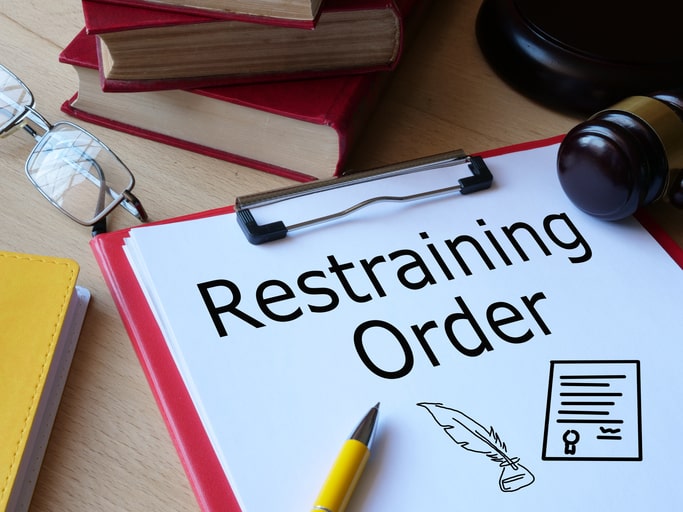What are the Limitations of a Restraining Order?
In Florida, a restraining order could be put in place against a person who is accused of domestic violence, stalking, or persistent harassment. A restraining order is legally binding. If a person violates it, they can be arrested and charged with a serious criminal offense. It is crucial that any person who is subject to a restraining order understands (and complies with) the restrictions. Here, our Stuart restraining order attorney explains key points to know about the limitations in Florida.
What is a Restraining Order?
The Florida Courts explain that a restraining order is “a court order that tells one person to stay away from and not contact another person.” It is legally binding. State law enforces a restraining order. You may also hear a restraining order referred to as an injunction for protection or, more informally, a domestic violence order. In Florida, restraining orders can be sought for various reasons, including protection against domestic violence, stalking, sexual violence, and dating violence. To obtain a restraining order, the petitioner must demonstrate to a judge that they have been a victim of violence or are in imminent danger of becoming a victim. Once issued, a restraining order is generally enforced by local law enforcement agencies.
Restraining Orders are Situation-Specific (Understanding Common Limitations)
While restraining orders typically carry some common restrictions, they can also be crafted to fit a specific situation. Indeed, it is very common for restraining orders in Florida to have specific terms and conditions. Here are some of the most common limitations that you may find in such an order:
- Location: In Florida, a restraining order can specify prohibited locations where the respondent must not go. Most often, the location will include the petitioner’s home, workplace, and any school attended by their children. The limitation for locations is designed to prevent any accidental or intentional encounters that could lead to conflict or harm. The exact locations are detailed in the order based on the petitioner’s regular activities and places of significance to them.
- Contact: For the most part, restraining orders will prohibit contact. Indeed, a restraining order in Florida generally prohibits all forms of direct and indirect contact with the protected person. Some common examples of communication that are usually expressly prohibited include phone calls, text messages, emails, social media interactions, and sending messages through third parties. The aim is to create a complete communication barrier that prevents any potential harassment or intimidation. In some cases, the court may allow limited contact for specific purposes—such as arranging child visitation.
- Distance: Restraining orders in Florida may include a specific distance the respondent must maintain from the petitioner at all times, commonly set at 500 feet or more. The restriction is enforced not only around the petitioner’s home and workplace but also in public areas like parks and supermarkets. A non-intentional violation of a distance restriction could potentially be excusable if it was genuinely not the fault of the respondent.
- Living Arrangement: Restraining orders may include provisions for living arrangements. If the petitioner and respondent live together, a Florida restraining order can require the respondent to move out immediately from the shared residence. The provision is common in cases involving domestic violence—where cohabitation can pose a continued threat to the victim. The court may also arrange for law enforcement to supervise the removal of the respondent’s belongings to ensure safety during the process. These are highly complex matters. If you have any specific questions, a Florida restraining order can help.
- Firearm Possession: Finally, a restraining order could be used to suspend a respondent’s firearm possession rights. However, to be clear, that does not always happen with every restraining order. Under Florida law, a restraining order can lead to the temporary confiscation of any firearms and ammunition owned by the respondent and a prohibition on purchasing new firearms. It is based on the premise that removing access to firearms reduces the risk of violence. Compliance is closely monitored, and failure to surrender firearms can result in very serious criminal penalties.
Contact Our Stuart, FL Restraining Order Attorney for Immediate Legal Help
At The Law Office of Denise Miller, PA, our Florida restraining order defense lawyer is a skilled and experienced advocate for clients. If you have any specific questions about the limitations or restraining order, please contact us today for a confidential consultation. From our Stuart law office, we defend restraining order violation allegations in Martin County and throughout South Florida.





